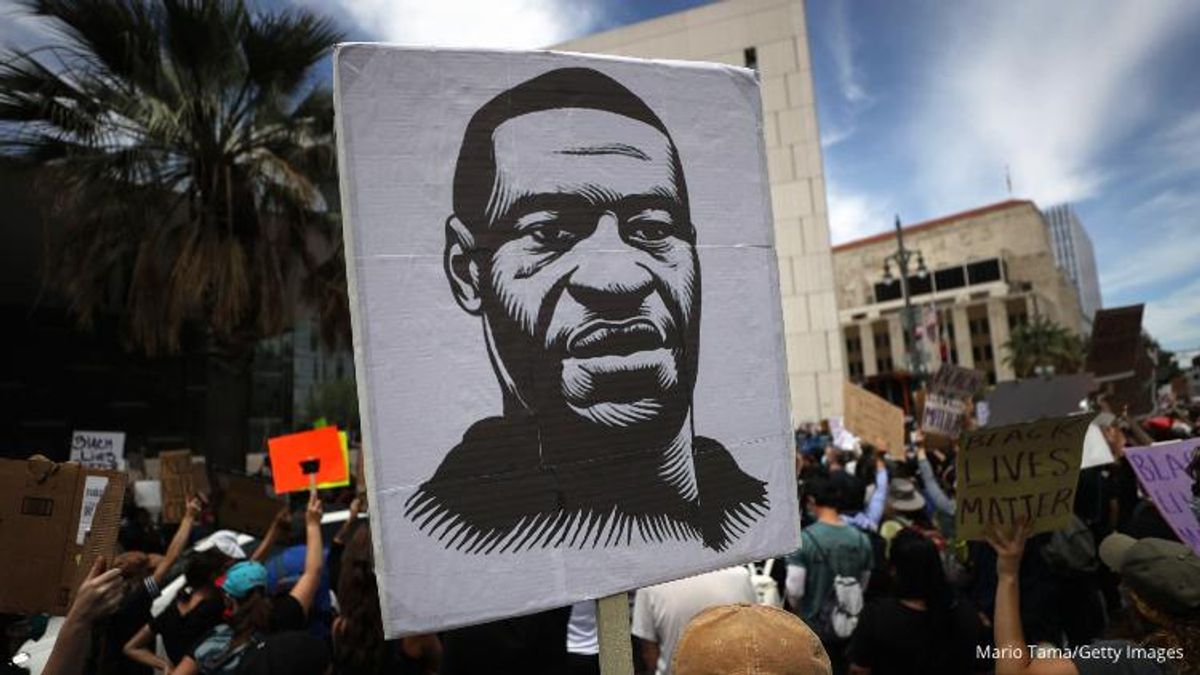All four police officers who were present when unarmed Black man George Floyd was killed in Minneapolis will now face charges, and the charge against Derek Chauvin will be upgraded.
Minnesota Attorney General Keith Ellison announced the charges Wednesday afternoon, after the Minneapolis Star Tribune had reported they were forthcoming. Ellison is leading the prosecution at the request of Gov. Tim Walz, but he stressed that it will be a team effort with Hennepin County Attorney Mike Freeman and his staff.
Derek Chauvin, who kept his knee on Floyd's neck despite Floyd's protestations that he couldn't breathe, had already been charged with third-degree murder and second-degree manslaughter. He will now be charged with second-degree murder, while the second-degree manslaughter charges will remain the same.
"Police are trained that this type of restraint with a subject in a prone position is inherently dangerous. ... Officer Chauvin's restraint of Mr. Floyd in this manner for a prolonged period was a substantial factor in Mr. Floyd losing consciousness, constituting substantial bodily harm, and Mr. Floyd's death as well," the amended complaint reads.
Officers Tou Thao, J. Alexander Kueng, and Thomas Lane, who were also at the scene when Floyd died May 25, were charged Wednesday with aiding and abetting second-degree murder while committing a felony, and with aiding and abetting second-degree manslaughter with culpable negligence. They were not initially charged.
All four officers have been fired, and Minneapolis Police Chief Medaria Arradondo has said they were "complicit" in Floyd's death. An autopsy has ruled Floyd's death a homicide.
The maximum sentence for second-degree murder in Minnesota is 40 years, compared to 25 years for third-degree, CNBC reports. Aiding and abetting second-degree murder also carries a maximum sentence of 40 years, while aiding and abetting manslaughter has a 10-year maximum prison sentence.
Outrage over Floyd's death and other acts of violence against African-Americans, by police and others, have spurred protests across the country. Ellison noted in a press conference that incidents of police brutality have been "underprosecuted" in Minnesota and elsewhere.
"I don't believe one successful prosecution can reflect the hurt and loss that people feel," he said.
"We strongly believe these developments are in the interest of justice for Mr. Floyd, his family, this community, and our state," Ellison commented. "George Floyd mattered. He was loved, his family was important, and his life had value. We will seek justice for him and for you and we will find it." But he cautioned that successful prosecutions take time, and he urged the public to be patient.
Ellison said he will not personally prosecute the case, but experienced prosecutors from Freeman's staff will. Freeman is the only county attorney in Minnesota to have won a murder conviction of a police officer who killed a civilian, although that one was controversial because the officer convicted was a Black Somali immigrant, Mohamed Noor, and some people believed he was treated more harshly than a white officer would have been.
Floyd's family and their legal team, headed by civil rights attorney Benjamin Crump, issued a statement praising Ellison's action but saying they supported a charge of first-degree murder, which in Minnesota requires proof of premeditation and deliberation.
"This is a significant step forward on the road to justice, and we are gratified that this important action was brought before George Floyd's body was laid to rest," the statement said in part. "That is a source of peace for George's family in this painful time."














































































